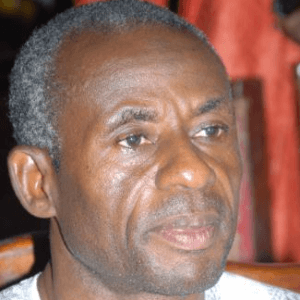Decentralisation is essential to development – Minister

Alhaji Collins Dauda, the Minister of Local Government and Rural Development, says Ghana has made significant progress in the decentralisation process since its establishment.
Notable amongst them is the formulation and implementation of the first four-year National Decentralisation Policy Framework and Action Plan which came into force in 2010-2014 after extensive by-partisan stakeholder
consultations in 2010.
Alhaji Dauda was speaking at the launched of the new GIZ Support for Decentralisation Reforms (SfDR) Project in Accra.
He said Ghana had chosen to make democracy and development a reality by decentralising the administrative, political and financial machinery of government to the district assemblies.
He said this created opportunities for people at the local and grass-root levels to participate in decision-making processes on issues that affected their localities.
Alhaji Dauda said over the years, legislations such as the Local Government Act, (Act 462,1993), District Assemblies Common Fund Act (Act 455, 1993), National Development Planning Systems Act (Act 480, 1994), Local Government Service Act (Act 656, 2003) and other relevant enactments had been passed to enhance the decentralisation provisions stipulated in Chapter 20 of the 1992 Constitution.
He said the Local Government Act, in particular, enabled the district assemblies to get the basic tools and enablers of Local Governance and Decentralisation as well as the highest political, administrative,
legislative, and planning and budgeting authority at the local level.
The Minister said the formation of the Inter-Ministerial Co-ordinating Committee (IMCC), the implementation of composite Budgeting System, and the promulgation of the Local Government (Department of the District Assemblies) commencement instruments, LI 1661, triggered the establishment of the 17 deconcentrated departments of the metropolitan, municipal and district assemblies.
This, he said, also saw the symbolic transfer of 30,000 civil servants to the Local Government Service and added that the operation of the local Government Service was highly commendable.
The Minister said the German Government had supported Ghana’s decentralisation process since 1998 when the support to District Capital Project 1 and 2 were formulated to provide basic level of infrastructure to some selected district assemblies.
This was followed by support for the strengthening of the capacities of districts in poverty reduction under the Local Governance Poverty Reduction Programme, he said.
Siegfried Leffler, the Country Director of GIZ, said an effective and efficient administration was an indispensable prerequisite of Ghana’s vision of modern sustainable economy.
He said the GIZ would continue to provide advisory services for institutional capacity building and processes between the ministry, the decentralised entities, and the IMCC and other state organisations, as well as the ministry and civil societies.
Mr Leffler said GIZ had contributed significantly to human capacity measures at the ministry, metropolitan, municipality and district levels where it had been working in almost all facets of administration throughout the past 13 years.
Dr Hartmut Krebs, the Head of the SfDR Project, said Ghana’s decentralisation process gained momentum in 1998 when 110 districts were created in the 10 regions.
He said the country was given a special boost when the decentralisation programme was introduced and was formally anchored in the Constitution in 1992 and in other relevant laws.
Mr Krebs said the event prepared the grounds and shaped positive framework conditions for Ghana’s decentralised development process.
He said in spite of the substantial progress made over the years, results were not balanced in public services at the local levels, adding, “in the districts, relevant local authorities, civil society organisations and community groups still lacked the required resource and expertise for effective local government in accordance with the national decentralisation policies.
“There is still a widespread perception that the Government is responsible for development alone, and local self-help abilities are not sufficiently mobilised while capacities at district and community levels are not used to their full potential,” he said.
Source: GNA
